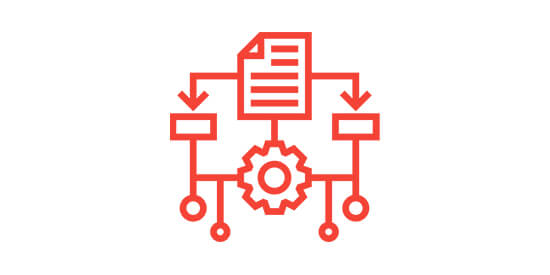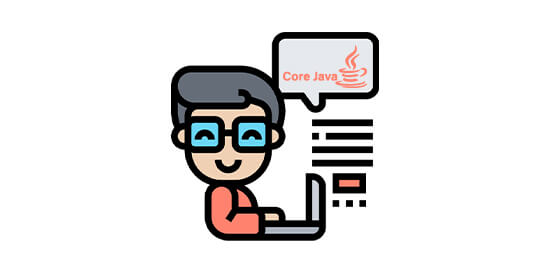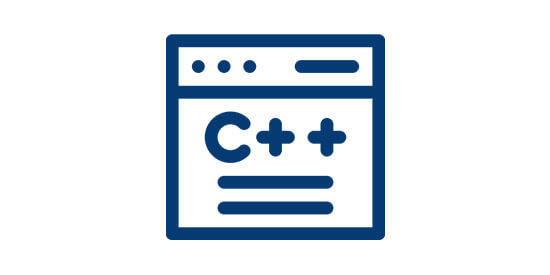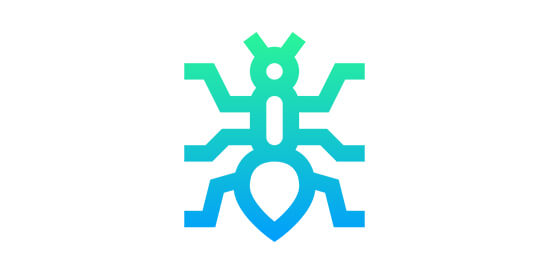C Programming Online Training

C Programming Course Online
QTS offers C programming online training to help students learn programming skills to solve complex problems. The C programming language is one of the most popular and steady programming languages in the world. It powers car navigation systems, robots, smartphone, drones and almost all electronic devices. C is used in all situations where speed and flexibility are essential, such as embedded systems or powerful computers. In this C programming online course, you will be introduced to C and how to write your first programs, perform simple calculations and write the results on the screen repeat instructions using loops and store values in variables. After completing the course, you can get job opportunities as a C programmer, team lead, and many critical posts in the organization.
Course Overview
The C Programming language training provides a solid programming foundation for students who want to solve complex problems by writing computer programs. You will learn to develop algorithms systematically and to read and write C code. The C programming training will prepare you for a career as a software developer or another job in IT.
Even those with no programming experience can start programming in C straight away using powerful but straightforward programming tools directly in the browser. Both beginners and professionals can make use of our ‘C’ language tutorial. Our expert trainers provide hands-on training and real-time scenario-based projects for practice. By the end of the course, you will become a pro in C commands and efficient enough to handle real-time issues.
C Programming Certification Key Features
- Introduction of C language
- Core concepts of C programming and C libraries
- Provide you with C programming interview questions
- Guidance in building a good ‘C’ programming language resume
- Mock Tests, Mock interviews
- Flexible timings
- One on One sessions
- 24* seven assistance
Who should learn C Programming course?
This course is ideal for professionals who are keen to enter the programming world. And also for experienced developers who want to advance their careers. Freshers who wish to pursue a career in ‘C’ can also opt for this course.
Top Hiring Company

Industry Trends

Course curriculum / Syllabus
- System Software overview
- What are the different Types of Operating System?
- What are the different Types of Programming Languages
- Understanding Translators
- Desirable Program Characteristics
- Wxploring Programming Techniques
- History of C Language.
- Characteristics of C language
- Flavors of C language
- Using Identifiers and Keywords
- workings of Data types in ‘C’
- Workings of Constants in C
- Workings of Variables and Arrays in C
- Workings of Declarations
- Using Expressions in ‘C’
- What are Statements in ‘C’?
- Understanding Symbolic Constants
- Workings of Arithmetic Operators
- Using Unary Operators
- Understanding Relational and Logical Operators
- Using Assignment Operators
- Using Conditional Operator
- Understanding Bitwise Operators
- workings of Preliminaries
- Understanding Library Functions
- Workings of Single Character Input –getchar Function
- Workings of Single Character Output –Putchar Function
- Workings of Entering input Data –scanf Function
- Detailed concepts of scanf Function
- How to Write Output Data –Printf Function
- More About printf Function
- Workings of gets and Puts Function
- Understanding Interactive Programming
- Planning a C Programming.
- Writing a C Programming.
- Ways to Enter Program into Computer
- Details of Compiling and Executing the Program
- What are Error Diagnostics?
- Understanding Debugging Techniques
- Branching: The Decision Control Structure
- Using if –else statement
- Using Nesting of if …Else statement
- Workings of Switch statement
- workings of Unconditional Uncontrolled Statements
- What is Conditional Controlled Statements?
- Understanding Conditional Uncontrolled Statements
- Using Number Systems
- Using Bitwise Operators
- what is Bit Fields and how to use it?
- Applications of Binary Systems
- Introducing Functions
- Defining a Function
- Accessing a Function
- Understanding Function Prototype
- Workings of Passing Arguments to a Function
- Workings of Recursion
- Using Nested Functions
- Understanding User Defined Header Files
- Workings of Function Calls
- Understanding Memory Concepts
- What is Storage Classes?
- Using Automatic Variables
- Using External (Global) Variables
- Workings of Static Variables
- Understanding MultiFile Programs
- Understanding Register variables
- Fundamentals of Pointers
- Introduction to Memory
- What is Pointer Declarations?
- Operations on Pointers
- What is Void Pointers and the usage of it?
- What is Passing Pointer to Functions?
- Workings of Function returning pointers
- Understanding more about Pointer
- exploring Passing Pointer Parameters to Functions
- What is Call by References
- Introduction of Arrays
- what is Array Declaration?
- What is Array initialization?
- Using Single Dimension Arrays
- Workings of Pointer and Arrays (Single Dimension)
- What is Array of Pointers?
- What is Initialization a 2-Dimensional Arrays?
- Understanding Three Dimensional Arrays
- Working with Pointers and Multidimensional Arrays
- Introduction to Strings
- Understanding Standard String Library Functions
- Workings of Arrays and Strings
- Using Pointer and Strings
- Using Function and Strings
- Understanding Dynamic Memory Allocation
- Using Macro Substitution
- Using Macros with arguments
- Workings of File Inclusion
- Workings of Macro Testing
- Workings of ANSI Additions
- Declaring a Structure
- Processing a Structure
- Workings of Typedef
- What is Array of Structures?
- Using Structures and Pointers
- Workings of Passing Structures to Functions
- What is Self-Referential Structures?
- Understanding Unions and Structures Differences
- Uses of Structures
- what is Enumerations?
C Programming Online Training FAQ’s:
C is a procedural programming language for general-purpose computers that supports structured programming, lexical variable scope, recursion, and a static system.
The C programming language is popular and it is known as the mother of all programming languages. It is a language that handles memory management very flexibly. C is the best choice as a system programming language.
C is the base language for all other programming languages. So if you know C well, you can quickly learn other programming languages (C++, Java, etc.)! It is, therefore, a good idea to start programming in C (especially if you are new to programming). This year (2021) is no exception.
We would reschedule or provide you with a recording of the session, along with C language training material for self-study.
Yes, you can attend the demo and clarify your concerns with the team.
Yes, we do provide job placement services.
Enquire Now
Related Courses
Why QTS INFO
Best Virtual training classrooms for IT aspirants
Real time curriculum with job oriented training.
Around the clock assistance
We are eager to solve your queries 24*7 with help of our expert faculty.
Flexible Timings
Choose your schedule as per your convenience. No need to delay your work
Mock projects
Real world project samples for practical sessions



